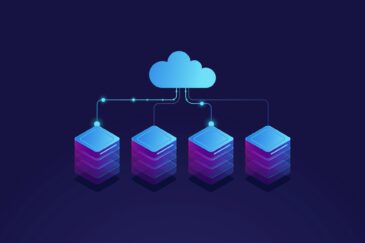In today’s anarchic and unpredictable world of business, the requirement for nimbleness and tightness has never been more called for than this time around. Business transformation involves rethinking processes, embracing innovation, and harnessing technology to drive value creation. Traditional ERPs have often struggled to meet changing business needs due to constraints posed by legacy infrastructure as well as siloed data structures that characterize them. In this regard, Cloud ERPs offer answers that are enticing since they aid organizations in managing changes in a better manner while allowing them to seize new opportunities with confidence.
To ensure the successful integration of Cloud ERP into an organization’s system, there is a need for strategic alignment with the goals and objectives of that particular organization. With such Cloud ERP solutions’ scalability as well as accessibility capabilities being exploited by an enterprise, it is possible to optimize the allocation of resources and enhance the decision-making process thus shortening time-to-market cycles. Moreover, cloud ERPs foster increased cooperation among different departments leading to the eradication of silos, thereby enabling cross-functional synergy.
There are several advantages related to ERP combined with cloud technology.
The inclusion of cloud systems into ERPs ensures that easy scaling up or down depending on demand can be achieved without significant infrastructure investments required once businesses grow or experience fluctuations in demand. Resources can be scaled up or down as needed.
Mostly, cloud ERPs operate on a subscription basis, doing away with upfront hardware costs and reducing maintenance expenditures. Besides, by allowing for the pay-as-you-go option, businesses incur fewer costs, making it economical, especially for small firms.
Due to their internet-based nature, cloud ERP systems can be accessed from anywhere. This facilitates remote work, promotes collaboration among geographically dispersed teams around the globe, and enables real-time data access.
In addition to being a central point of contact for sharing data and communicating within an organization, cloud ERPs encourage cooperation between departments. Consequently, working together is easier resulting in quick decisions made and hence higher productivity levels.
Cloud ERP vendors incorporate system updates and maintenance without interrupting business flow, thus ensuring that organizations are always up to date with regards to software features plus security patches without having to manually intervene.
Data protection is vital, hence the heavy investments in security measures by cloud ERP vendors against data breaches that come with cyber-attacks or unauthorized entries. Such measures often encompass advanced encryption techniques, authentication protocols, etc., as well as regular security audits geared toward protecting sensitive information.
These solutions have built-in redundancy and disaster recovery capabilities, which minimize the risk of data loss or downtime. When a company’s servers do fail, or there is an emergency incident such as a fire outbreak at its premises, information technology operations can easily resume from backup facilities where all relevant records would still be accessible.
The integration of the cloud and ERP can facilitate faster reactions to customers and better order accuracy and communication. For a company to enjoy repeated business from its clients, satisfaction must be raised above just great products at good prices.
When all is said and done, the adoption of cloud ERP should be viewed as a long-term strategic decision aimed at process optimization, informed decision-making, and embedding the idea of continuous improvement into the company’s lifestyle. In light of this, businesses that leverage cloud ERP will be better positioned to address challenges arising from changes in demand patterns as well as ensure their sustainability in an increasingly globalized environment characterized by stiff competition.





